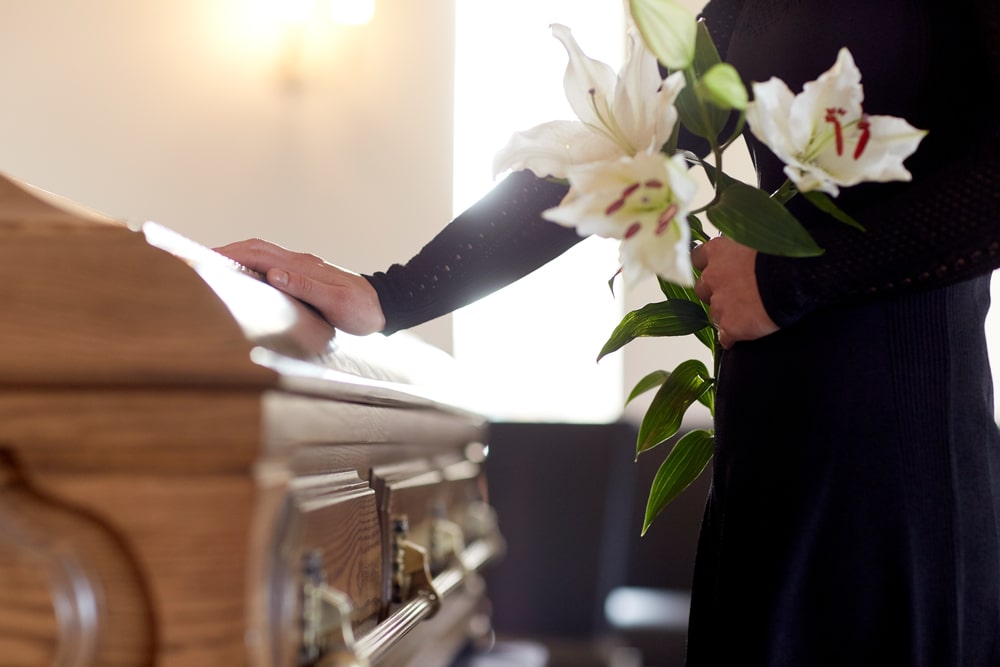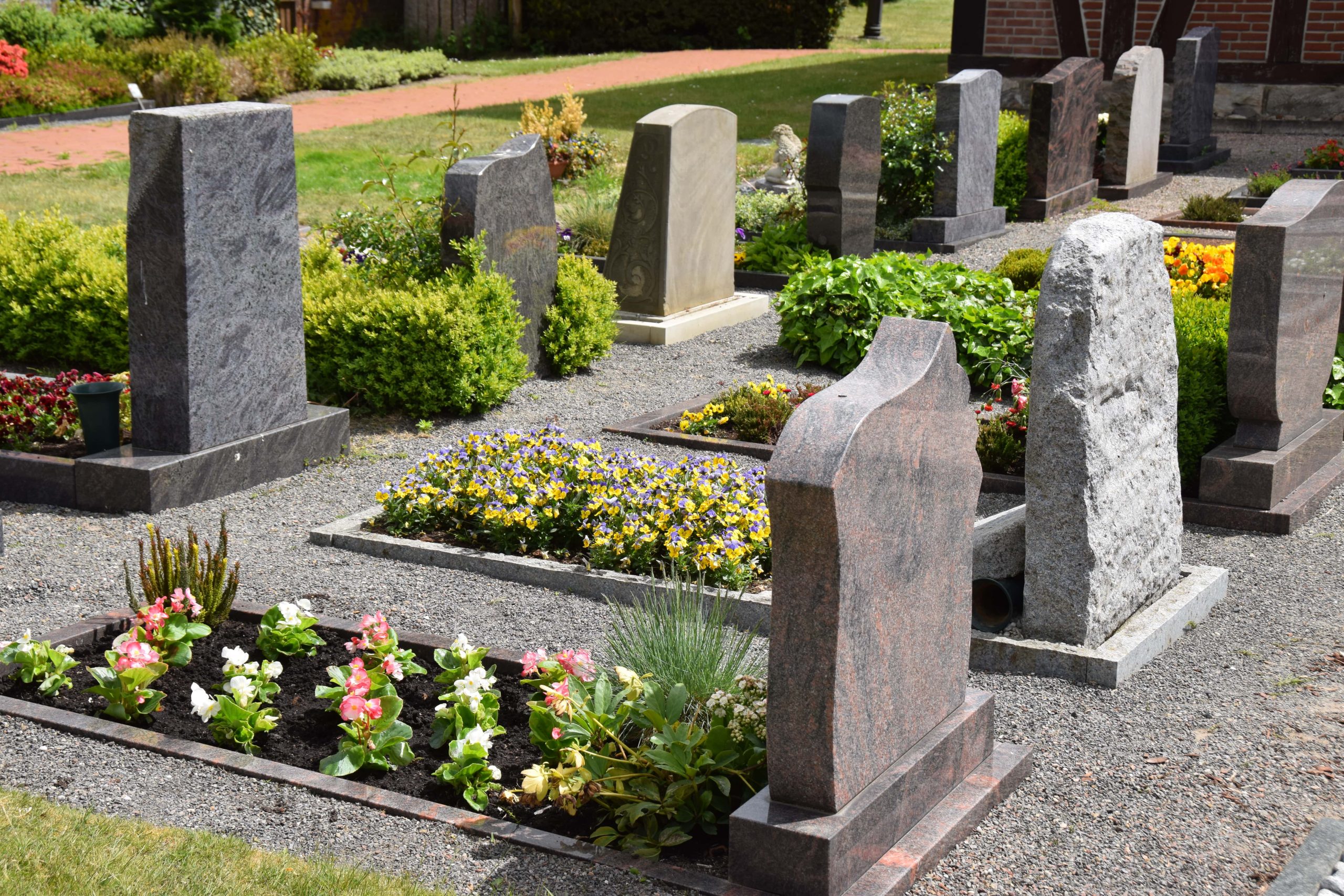With a loved one in hospice care, it’s possible that you may be planning a final tribute sometime in the near future. But what exactly do funeral directors do, and how can they help you? To most people, funeral service is a bit of a mystery. That’s because a vast majority of people have never had to plan a funeral. Let’s look at some of the main ways funeral directors serve grieving families during a time of loss.
Funeral directors are event planners, caregivers, and administrators. Often, they are also embalmers, caring for a loved one’s body. In many ways, funeral directors are guides to families during a very confusing and difficult time. For instance, funeral directors are there to offer comfort, advice, guidance, and insight to families during the entire funeral planning process. Here’s a look at what funeral directors do every day to serve families.
Creating a Healing and Meaningful Funeral or Memorial Service
Primarily, a funeral director’s role is to help the family create a personalized and meaningful funeral experience. A good funeral service brings healing to the grieving while honoring the final wishes of the person who has died. So, a funeral director’s main job is to help the family grieve the loss of a loved one while also ensuring that the deceased’s body is cared for with dignity and respect.
The following list covers the eight primary duties that funeral directors perform every day with great dedication and attention to detail.
1. Care for and prepare the body of the deceased for final disposition
Firstly, the funeral director will coordinate the transfer of the deceased into the care of the funeral home, day or night. Then, they will direct and supervise the work of embalmers, funeral attendants, death certificate clerks, cosmetologists, or other staff.
Preparation and care of the body may include all of the following:
-
- Washing of the body
- Embalming preparation
- Restorative art
- Dressing
- Hairdressing
- Cosmetology
- Casketing
If cremation is chosen, the funeral director will oversee the cremation and return the cremated remains to the family. In cases where the body must be transferred out of state, the funeral director will coordinate the transfer of the body to the final place of rest, in accordance with the applicable laws and regulations.
Finally, the funeral director will offer the family options for caskets, urns, burial liner/vault, and cemetery space, as applicable.
2. Plan the funeral with the family
Next, the funeral director will meet with the family for the arrangement conference. During this time, the funeral director can get to know the family and educate them on how to plan a healing and meaningful service.
To create a personalized service, funeral directors listen to the family and offer ideas, insights, and advice. During this time, the funeral director will share the elements of a meaningful funeral and offer suggestions for visitations, gatherings, readings, music, eulogies, symbols, and healing actions.
In addition, funeral directors incorporate funeral customs based on the family’s preferences. Personalization may include traditions of faith groups and/or civic organizations, military honors, or cultural rites and rituals.
Most funeral directors are able to offer a variety of options to suit the family’s needs. Funeral directors are there to answer any questions the family may have and help them make choices that are right for them. That way, the funeral or memorial service brings comfort and peace to all who mourn the loss.
3. Coordinate all the details behind the scenes
In addition to helping the family plan the funeral experience, funeral directors perform various duties behind the scenes. For example, funeral directors usually:
- Prepare and submit obituary information to media outlets as needed
- Help the family coordinate with clergy or celebrants, a venue for the service, and musicians
- Ensure that clergy or celebrant and musicians know where to be when and that they receive an honorarium for their time
- Help order funeral sprays and other flower arrangements as the family wishes
- Ensure that the funeral, memorial, and/or graveside service venues are properly prepared
- Coordinate any cremation or burial processes
- Make sure that the funeral service is streamed live or digitally recorded, if the family wishes
- Provide additional memorialization products; for example, a register book, prayer cards, acknowledgment cards, and funeral folders
- Coordinate a police escort for the funeral procession
- Handle all memorial contributions presented to the family
4. Take care of permanent memorialization needs
Next, the funeral director helps the family consider permanent memorialization needs. For instance, they may discuss options such as a cemetery plot, columbarium niche, plaque, grave marker, deciding on where to scatter ashes, and more. As part of their role, the funeral director will help you review your options and choose what fits best for your family. Then, they will help with the details. A funeral director will:
- Schedule the opening and closing of the grave with cemetery personnel
- Help the family choose a casket, urn, burial vault, and cemetery plot
- If scattering is chosen, they will offer location options and suggestions
- For a graveside service, they will:
- Provide transportation for the remains, primary mourners, and flowers between sites
- Coordinate with the cemetery to prepare and decorate the site for the service
- Make sure gravestones or grave markers are ordered and placed in the cemetery
5. Assist with legal documentation
After losing a loved one, there are a lot of legal documents to complete and file with the state or federal government. However, the funeral director will take the lead on some of this documentation, ensuring that everything is taken care of as needed. For instance, the funeral director will:
- Submit documentation for an official death certificate
- Help the family obtain certified copies of the death certificate
- Request cremation or burial authorization documents and permits
- Explain the benefits available through Social Security or the Veteran’s Administration
- Assist with submitting claims for prepaid burial plans, insurance policies, or annuities on behalf of surviving family members
- Stay informed on any policies, regulations, or laws to ensure that funeral service operations are in compliance
6. Share grief resources
After the funeral or memorial service, the funeral director may continue to check in with the grieving family to see how they are doing. As the funeral director listens to and assesses the family’s needs, they may:
- Provide grief assistance and grief resources
- Connect the families and friends with local grief counselors
- Share support group activities in the area
7. Help families plan ahead
While most of a funeral director’s responsibilities occur after a loss, not all do. For instance, they do often help families record funeral wishes ahead of time. Planning ahead for funeral wishes can be extremely helpful to loved ones. The more your family knows about your final wishes, the easier the funeral planning process will be after you’re gone. At the time of loss, many families are plagued by the question, “Did we do the right thing?” It would be so much easier if they knew exactly what you wanted. This is why funeral directors actively work with families to create a written plan that will benefit surviving family members. The funeral director will:
- Ask questions about your wishes
- Determine whether you prefer cremation or burial
- Review casket, urn, and grave liner/vault options
- Go over permanent memorial options
- Share the benefits of having a healing and meaningful service
- Brainstorm ways to personalize the funeral or memorial service
- Gather vital statistics information
- Review veterans’ burial benefits, if applicable
- Discuss payment options (if you would like to pay in advance to save your family from the expense in the future)
- And more!
8. Run a small business
Lastly, a number of funeral homes are family-run businesses, and funeral directors may need to wear a few different hats. When they aren’t assisting families, the funeral director may need to:
- Work with various vendors such as florists, caterers, and cemeteries to fulfill the family’s wishes
- Submit death certificates to the state
- File necessary documentation and permits
- Complete billing, bookkeeping, and payroll duties
- Keep accurate records of inventory
- See to any last-minute details for the family
- Other duties to keep a small business running
As you can see, funeral directors do quite a lot. While there may be some things you’d like to do yourself, the professionals are there to take care of you! They know exactly what is needed and can make everything a little easier.
*NOTE: This article seeks to list the vast majority of the responsibilities of a funeral director, but it’s not comprehensive.









